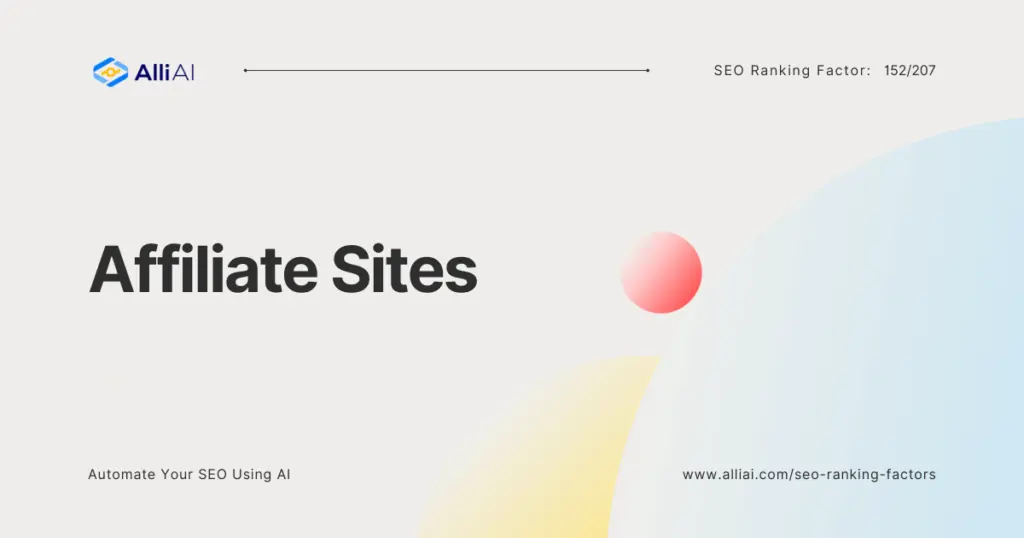What is Affiliate Sites as a Ranking Factor?
Affiliate sites, in the context of search engine optimization (SEO), refer to websites that earn revenue by promoting products or services and receiving a commission for the referrals. The concept of an affiliate site as a ranking factor revolves around how search engines evaluate these sites’ content quality, relevance, and the value they provide to users, which in turn affects their visibility in search engine results pages (SERPs).
Imagine a bustling marketplace where dozens of vendors are selling similar products. Each vendor has affiliates or partners spreading the word about their products. Now, the marketplace owner (akin to a search engine) notices which affiliates are genuinely engaging customers, providing them valuable information, and genuinely guiding them to the best products. Those affiliates get a prominent spot in the marketplace. Similarly, in SEO, affiliate sites that offer genuine, helpful content to their users are ranked higher by search engines.
Why is Affiliate Sites as a Ranking Factor important in SEO?
Affiliate sites carry significant importance in SEO because they can significantly impact user experience and site credibility. Search engines aim to provide users with the most relevant and valuable content. If affiliate sites offer high-quality content that answers users’ queries and provides genuine product recommendations, they are seen as valuable resources. This leads to better rankings in SERPs. Conversely, affiliate sites focused solely on sales without providing value can harm user experience and are often penalized by search engines.
How Affiliate Sites as a Ranking Factor affects SEO?
Affiliate sites affect SEO in several ways. Firstly, the quality of content on affiliate sites can influence their authority and trustworthiness in the eyes of search engines. High-quality, informative content is rewarded with higher rankings, while thin, low-value content is demoted. Secondly, the user engagement level—measured by metrics such as time on site, bounce rate, and click-through rate—can signal to search engines the value a site provides. High engagement levels can boost SEO performance.
Additionally, the relevance and legitimacy of external links to and from affiliate sites play a crucial role. Search engines evaluate these links to determine the site’s niche authority and relevance. Misleading or unnatural linking practices can negatively impact SEO.
FAQ
How Do Affiliate Links Affect SEO?
Affiliate links themselves do not directly harm SEO, provided they are used responsibly and transparently. Marking affiliate links as “nofollow” or “sponsored” can inform search engines that these links are not intended for manipulative purposes, thus preserving a site’s SEO integrity.
Can Affiliate Sites Rank Well Without High-Quality Content?
While it’s technically possible for affiliate sites to achieve temporary success or rankings through other means (e.g., strong backlink profiles), sustained success and visibility in SERPs increasingly depend on providing high-quality, valuable content to users.
How Important is the Choice of Affiliate Products to SEO?
The choice of affiliate products is crucial not only for conversion rates but also for SEO. Promoting products that are relevant to your site’s content and audience can enhance content quality and user engagement, two key factors that search engines consider when ranking sites.
Conclusion
Affiliate sites operate within a competitive landscape that requires more than just promoting products to succeed. In the world of SEO, these sites must offer genuine value through high-quality content, build trust and authority within their niche, and ensure a positive user experience to stand out. As search engines continue to refine their algorithms, the role of affiliate sites as a ranking factor will increasingly hinge on their ability to meet these criteria. Successful affiliate marketers will be those who focus on creating content that serves their audience first, with monetization as a secondary, complementary goal.






